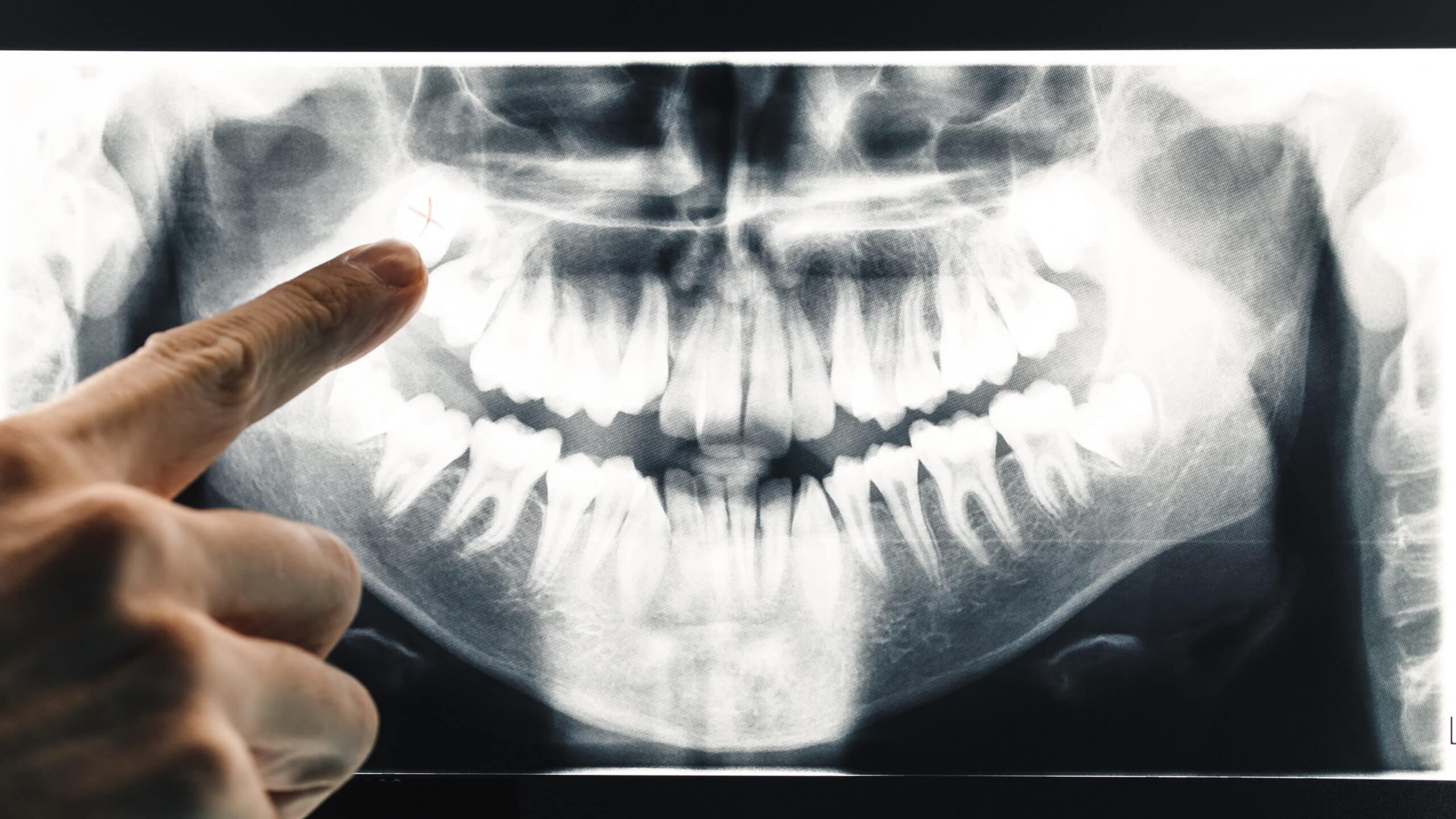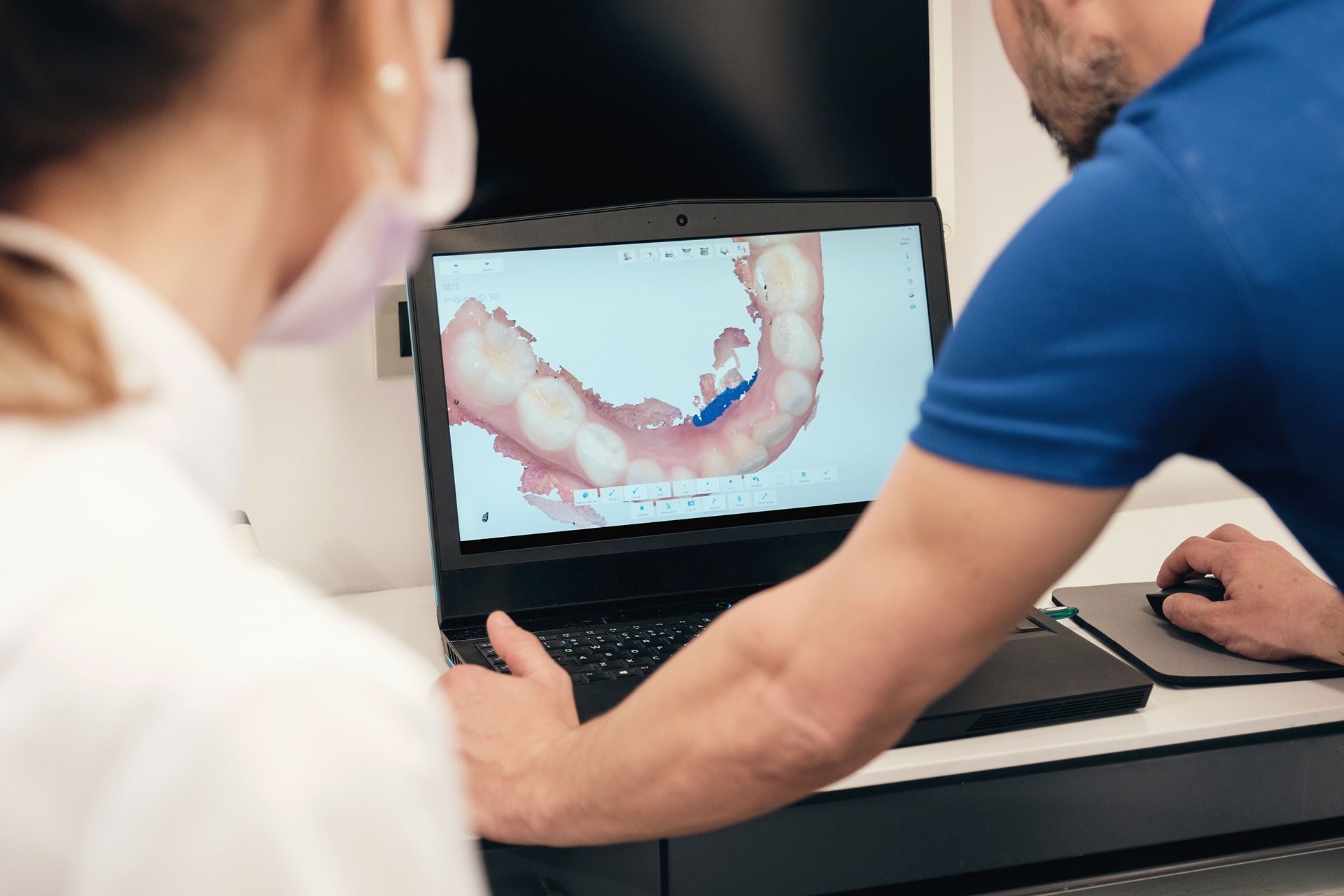- Why wisdom teeth cause problems
- Common wisdom teeth removal signs
- 8 hidden signs your wisdom teeth need to come out
- Do I need wisdom teeth removed?
- Visiting the dentist to address wisdom tooth issues
Your wisdom teeth, also known as the third molars, are located at the back of your top and bottom teeth. Their placement makes them easy to ignore, unless problems develop that can impact your other teeth, chewing ability, and overall well-being.
Recognizing the warning signs, even the eight hidden signs we detail in this blog, can save you from emergencies and more complex procedures that are avoidable with early intervention.
Why wisdom teeth cause problems
Many healthcare providers today consider wisdom teeth to be vestigial, meaning that at one point in our evolutionary history they served a purpose, but no longer do. The appendix is another example of a vestigial part of our body.
Wisdom teeth were essential to early humankind because of their contemporary diet, which consisted of raw plants, hard nuts, and tough meats. They needed wisdom teeth to grind these foods for proper digestion. With modern food preparation methods, we do not require such intense grinding.
Our wisdom teeth have become so unnecessary that many people are born without them. If you were born with few or no wisdom teeth, you might say you’re more evolved than those who were!
However, the fact that we’re losing the need for wisdom teeth can also mean that modern jaws are too small to fully accommodate them. As they typically emerge later than other teeth, wisdom teeth can often be impacted (remain trapped under the gumline because there’s no room for them to erupt through), prone to infection, or cause damage to adjacent teeth.
Common wisdom teeth removal signs
Many people already recognize the signs of a problem with their wisdom teeth. Sharp pain in the back of the mouth or swelling around the jaw area are classic symptoms of wisdom teeth problems.
Many people also complain of not being able to open their jaw fully due to impacted wisdom teeth, or painful abscesses around the area due to infection. In most cases of infection, the impacted wisdom tooth is partially erupted leaving a gap between it and the adjacent tissues, allowing food particles and bacteria to settle in the space.
If you have any of these symptoms, it’s a good idea to make an appointment with your dentist for a thorough examination, diagnosis, and treatment plan. However, there are other lesser-known signs of wisdom teeth issues you should be aware of before a small problem escalates into an emergency.
8 hidden signs your wisdom teeth need to come out
Hidden wisdom tooth symptoms sneak up on you and aren’t always instantly recognizable as being caused by those back molars.
- Subtle jaw discomfort
Intermittent, mild jaw aches, jaw stiffness first thing in the morning, or not being able to bite down completely can indicate trouble with your wisdom teeth. You may also be experiencing random and unexplainable tension headaches.
- Crowding of front teeth
Impacted wisdom teeth can put pressure on the neighbouring second molars, potentially causing them to shift, become misaligned or overlapped, or even be subject to decay or bone loss over the long term.
- Recurring bad breath or taste
Chronic bad breath that doesn’t improve with oral hygiene or a metallic or unpleasant taste in the back of the mouth may be caused by food and bacteria trapped around partially erupted wisdom teeth.
- Difficulty cleaning back teeth
The location of wisdom teeth at the back of the mouth makes them difficult to clean properly, increasing the risk of tooth decay and gum disease. Bleeding or tenderness when brushing back molars is also common when food is stuck in your back teeth.
- Recurring sinus problems
In some cases, upper wisdom teeth can push against the sinuses, causing sinus pain that radiates to your cheekbones or temples, pressure, and even headaches. Chronic sinus pressure, congestion, and infections may potentially relate to problems with our wisdom teeth.
- Changes in bite or chewing
You may have noticed your biting or chewing habits have changed, such as avoiding chewing on one side of your mouth or unconsciously favouring certain teeth for biting. This may be due to your wisdom teeth shifting your other teeth and changing your bite pattern.
- Ear pain or pressure
Wisdom teeth can cause problems such as ear pain without signs of ear infection, a feeling of fullness or pressure in the ears. These sensations may be caused by pressure from your wisdom teeth emanating into your ears.
- Neck and shoulder tension
Jaw problems triggered by wisdom teeth may also lead to chronic tension, stiffness, or pain in the neck and shoulders. You may also experience a change in your posture due to jaw compensation or sleep disruption from unconscious jaw clenching.
It is a good idea to pay attention to these signs of wisdom teeth problems, as they can develop into significant complications, such as damage to your other healthy teeth, cyst formation, and more complex corrective procedures.
Do I need wisdom teeth removed?
Wisdom teeth removal is a fairly standard procedure, as our remaining teeth can still function normally without them. Due to their placement at the back of the mouth, wisdom teeth extraction won’t impact our smile.
However, wisdom teeth extraction isn’t always necessary to correct the problems, even when issues arise. These decisions are made on a case-by-case basis, but generally speaking, if the wisdom teeth aren’t causing bite issues or causing chronic pain or infection, they may be able to stay in place until symptoms worsen.
In some cases, they might never need to be removed, especially if they erupt properly without causing overcrowding.
Visiting the dentist to address wisdom tooth issues
If you’ve noticed any impacted wisdom teeth symptoms, your dentist can help assess your oral health and, if necessary, make a recommendation for wisdom tooth pain relief and corrective treatment.
Here at Yonge Eglinton Dental, we specialize in helping detect early wisdom tooth problems with a thorough wisdom teeth consultation. We’ll listen to your concerns, conduct a complete examination, and discuss your treatment options with you to help alleviate your symptoms and ensure your teeth and gums are strong and healthy.
However, don’t wait for the painful, irritating signs of wisdom tooth problems. Have the “wisdom” to book an appointment and get ahead of oral health issues before they worsen!
Catch wisdom teeth problems early with help from the dental experts at Yonge Eglinton Dental in Toronto
Contact our dental health team when you’re ready to optimize your oral health. We will work together to ensure your teeth and gums look great and are as strong and healthy as possible. Make an appointment for an office visit today by calling our office at 416-932-2222 or booking online. We look forward to seeing you!
Are you concerned about visiting the dentist? Read about how we protect the health and safety of our patients and staff so your family can seek proper dental care with peace of mind.








